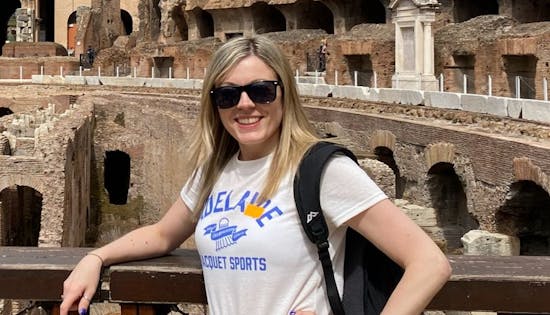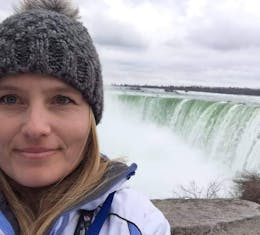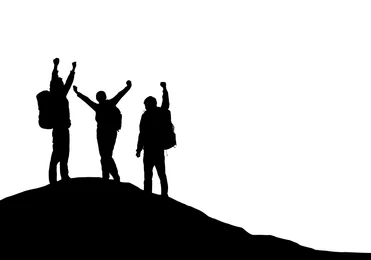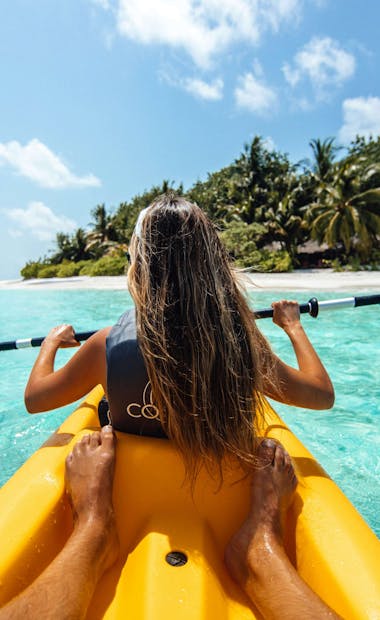
Zimbabwe Tours
Explore the wonders of Zim from the waterfalls to the wildlife
Popular tours
- Save1%
 View Tour
View TourVic Falls Short Break - 4 Days
- Victoria Falls to Victoria Falls
- Age group: 5 - 99
- Max group size: 6
Was:£770From£762 - Save36%
 View Tour
View TourVic Falls to Kruger - 9 Days
- Victoria Falls to Johannesburg
- Age group: 15 - 99
- Max group size: 22
Was:£1,240From£798 - Save26%
 View Tour
View TourJourneys: Botswana & Zimbabwe Safari - 10 Days
- Victoria Falls to Maun
- Age group: 12 - 100
- Max group size: 12
Was:£5,199From£3,860 - Save26%
 View Tour
View TourKruger, Falls & Zimbabwe: Mineral Pools & National Parks - 8 Days
- Victoria Falls to Johannesburg
- Age group: 18 - 39
- Max group size: 22
Was:£949From£705 - Save16%
 View Tour
View TourSouthern Africa Overland: Canoes & Camp-Outs - 15 Days
- Victoria Falls to Victoria Falls
- Age group: 18 - 39
- Max group size: 22
Was:£1,849From£1,556 - Save11%
 View Tour
View TourEssential African Safari - 9 Days
- Victoria Falls to Johannesburg
- Age group: 18 - 35
- Max group size: 22
Was:£895From£797
Zimbabwe Tours
Welcome to the breathtaking land of Zimbabwe, where enchanting wildlife encounters, awe-inspiring landscapes, and a rich cultural tapestry await. If you're seeking an unforgettable adventure, our Zimbabwe tours and holidays are your gateway to an extraordinary African experience. From the world-renowned Victoria Falls to the captivating wildlife of Hwange National Park, Zimbabwe offers a cornucopia of wonders that will leave you spellbound.
Picture yourself standing at the edge of Victoria Falls, one of the seven natural wonders of the world. As you witness the majestic Zambezi River plunging into a gorge, feel the mist on your face and hear the thundering roar that echoes through the air. The sheer power and grandeur of this spectacle will leave you in awe, making it a must-visit for any intrepid traveler.
But Zimbabwe's allure extends far beyond its iconic waterfall. Immerse yourself in the raw wilderness of Hwange National Park, a wildlife haven teeming with an incredible array of animals. Embark on a safari adventure and witness elephants, lions, giraffes, and zebras roam freely in their natural habitat. The park's vast expanses offer a truly immersive experience, where you can connect with nature on a profound level.
For those seeking an intimate encounter with wildlife, a journey to Mana Pools National Park is a must. This UNESCO World Heritage Site boasts a unique combination of river, woodland, and open plains, creating a sanctuary for a diverse range of species. Explore the park on foot, guided by expert rangers, and witness elephants grazing, hippos wallowing, and an abundance of birdlife gracing the skies above. The close proximity to nature will leave you with a deep appreciation for Zimbabwe's extraordinary biodiversity.
No visit to Zimbabwe is complete without delving into its rich cultural heritage. Immerse yourself in the vibrant city of Harare, where traditional markets, museums, and art galleries provide a glimpse into the country's history and contemporary art scene. Engage with the warm and welcoming locals, sample traditional cuisine, and partake in traditional music and dance performances that will ignite your spirit.
Zimbabwe's allure lies not only in its natural and cultural treasures but also in its warm and inviting atmosphere. With its diverse landscapes and abundant wildlife, this captivating destination promises an experience that transcends the ordinary. Whether you're a nature enthusiast, a wildlife lover, or a culture seeker, Zimbabwe offers an unforgettable journey that will awaken your senses and leave an indelible mark on your soul.
Embark on our Zimbabwe tours and holidays, curated to provide you with an exceptional travel experience. Let us guide you through this extraordinary land, where adventure and wonder await at every turn. Get ready to create memories that will last a lifetime as you immerse yourself in the untamed beauty of Zimbabwe.
Visa
The best time to visit Zimbabwe largely depends on your interests and the specific experiences you seek. Zimbabwe has a diverse climate, so the timing of your visit can greatly impact your overall experience. Here's a breakdown of the different seasons and their highlights:
Dry Season (April to October):
- The dry season, particularly from May to October, is generally considered the best time to visit Zimbabwe.
- The weather is mild, with warm days and cooler nights, making it comfortable for outdoor activities and safaris.
- Wildlife congregates around water sources, providing excellent game-viewing opportunities in national parks such as Hwange and Mana Pools.
- This period is ideal for witnessing the stunning spectacle of Victoria Falls, as the water levels recede and the falls become more visible.
Wet Season (November to March):
- The wet season brings lush green landscapes, vibrant flora, and newborn wildlife, which can be a rewarding sight for nature enthusiasts.
- Birdwatchers will delight in the multitude of migratory bird species that visit during this time.
- Although the weather can be humid and rain showers are frequent, it is also the low season for tourism, meaning fewer crowds and potentially more affordable rates.
- Note that some dirt roads and remote areas may become inaccessible due to heavy rains.
Ultimately, the best time to visit Zimbabwe depends on your preferences. If wildlife viewing is your priority, the dry season offers optimal conditions. However, if you appreciate lush landscapes, birdwatching, and lower tourist numbers, the wet season can be equally rewarding. It's recommended to plan your trip accordingly, taking into account the specific activities and destinations you wish to explore in Zimbabwe.
Will I need a visa to travel to Zimbabwe?
Yes, most visitors to Zimbabwe will require a visa to enter the country. However, the visa requirements vary depending on your nationality. Here are some general guidelines:
Visa on Arrival:
- Many nationalities can obtain a visa upon arrival at the airport or border crossing.
- This option allows you to obtain a visa at the port of entry without applying in advance.
- It is advisable to check if your nationality is eligible for a visa on arrival and ensure you have the necessary documentation and fees.
e-Visa:
- Zimbabwe also offers an e-Visa system, which allows visitors to apply for a visa online before their trip.
- The e-Visa simplifies the process by eliminating the need to apply in person at an embassy or upon arrival.
- You can apply for an e-Visa through the official Zimbabwe e-Visa website.
Pre-Obtained Visa:
- Some nationalities may need to obtain a visa from a Zimbabwean embassy or consulate in their home country before traveling.
- It is advisable to check the specific visa requirements for your nationality and allow ample time for visa processing if necessary.
When applying for a visa, ensure that your passport is valid for at least six months beyond your intended stay in Zimbabwe. Additionally, it's recommended to check the latest visa requirements and regulations from the official Zimbabwean embassy or consulate in your country or consult with a travel agency for the most up-to-date information.
Remember to plan ahead and secure your visa well in advance of your trip to Zimbabwe to ensure a smooth and hassle-free entry into the country.
What are the must see destinations in Zimbabwe?
Zimbabwe is blessed with an array of must-see destinations that showcase its natural wonders, wildlife, and cultural heritage. Here are some of the top must-see destinations in Zimbabwe:
Victoria Falls: No visit to Zimbabwe is complete without witnessing the awe-inspiring Victoria Falls. Marvel at the world's largest waterfall as it thunders into the Zambezi Gorge, creating a mesmerizing spectacle of mist and rainbows. Take a guided tour, go white-water rafting, or take a scenic helicopter ride for a truly unforgettable experience.
Hwange National Park: As Zimbabwe's largest national park, Hwange is a wildlife enthusiast's paradise. Embark on thrilling game drives and spot an abundance of elephants, lions, buffalo, giraffes, and various antelope species. The diverse landscapes, including grasslands and woodland, provide a captivating backdrop for unforgettable encounters with nature.
Mana Pools National Park: Located along the mighty Zambezi River, Mana Pools National Park is a UNESCO World Heritage Site renowned for its stunning beauty and exceptional wildlife experiences. Explore this untouched wilderness on foot, accompanied by experienced guides, and witness elephants, hippos, crocodiles, and a rich variety of birdlife in their natural habitat.
Great Zimbabwe Ruins: Delve into Zimbabwe's rich history by visiting the Great Zimbabwe Ruins, a UNESCO World Heritage Site. These ancient stone structures, built between the 11th and 15th centuries, offer a fascinating glimpse into the country's past and the civilization that thrived there. Explore the towering walls, mysterious passageways, and intricate stonework of this remarkable archaeological site.
Matobo National Park: Matobo National Park is a unique and otherworldly landscape of balancing rock formations and granite hills. Immerse yourself in the spiritual aura of this ancient land, which holds great cultural and historical significance for the local people. Discover ancient rock art, track rhinos on foot, and enjoy the breathtaking views from the top of the hills.
Eastern Highlands: Escape to the serene beauty of Zimbabwe's Eastern Highlands, a region of lush green valleys, misty mountains, and cascading waterfalls. Explore the Nyanga National Park, hike to the famous Mutarazi Falls, and rejuvenate in the picturesque tea estates and botanical gardens that dot the area.
These are just a few highlights of the many must-see destinations in Zimbabwe. Each place offers a unique experience that will leave you with lasting memories of this extraordinary country. Whether you seek natural wonders, wildlife encounters, or cultural heritage, Zimbabwe is sure to captivate your senses and leave you yearning for more.
What is the local currency in Zimbabwe, and can I use credit cards?
The local currency in Zimbabwe is the Zimbabwean Dollar (ZWL or ZWD). However, it's important to note that the currency situation in Zimbabwe can be quite fluid, and the country has experienced periods of currency instability in recent years. As a result, the use of foreign currencies, particularly the United States Dollar (USD), is prevalent in many transactions.Regarding credit cards, while they are accepted at some hotels, restaurants, and larger establishments in major cities like Harare and Victoria Falls, it's important to note that cash is still the primary form of payment in many places, especially in more rural areas and smaller businesses. It's advisable to carry sufficient cash, preferably in smaller denominations, for day-to-day expenses, local markets, and smaller establishments.
In addition, it's recommended to inform your bank and credit card company of your travel plans to Zimbabwe to avoid any issues with card usage or potential fraud alerts. ATMs are available in major cities and towns, allowing you to withdraw cash using your credit or debit card, but it's always advisable to have some cash on hand in case of limited access to ATMs or technical issues.
Keep in mind that the currency situation in Zimbabwe may change, so it's recommended to check with your local embassy, bank, or reliable sources for the most up-to-date information regarding currency and payment methods before your trip.
Is Zimbabwe a good family holiday destination?
Yes, Zimbabwe can be an excellent family holiday destination, offering a diverse range of experiences and attractions suitable for all ages. Here are some reasons why Zimbabwe is a great choice for a family holiday:Wildlife Encounters: Zimbabwe is home to an incredible array of wildlife, making it an ideal destination for families interested in wildlife safaris and animal encounters. National parks like Hwange and Mana Pools provide opportunities to see elephants, lions, giraffes, zebras, and more in their natural habitats. Children will be amazed by the sight of these majestic creatures up close, creating lasting memories.
Adventure Activities: Zimbabwe offers an array of thrilling activities that can be enjoyed by the whole family. From white-water rafting in the Zambezi River to zip-lining through the treetops of the Eastern Highlands, there are plenty of adventures to keep everyone entertained and excited.
Educational Opportunities: Zimbabwe's rich cultural heritage and historical sites provide excellent educational opportunities for children. Exploring the Great Zimbabwe Ruins, learning about the country's history and traditional customs, and visiting local communities can help broaden their cultural understanding and appreciation.
Victoria Falls: The iconic Victoria Falls is a natural wonder that appeals to visitors of all ages. The sight of the magnificent waterfall and the surrounding lush landscapes will captivate both children and adults alike. Additionally, various family-friendly activities, such as river cruises, guided nature walks, and helicopter rides, offer unique perspectives and add to the overall experience.
Welcoming Atmosphere: Zimbabweans are known for their warmth and hospitality, making it a welcoming destination for families. The locals are friendly and often enjoy interacting with visitors, creating a positive and enjoyable atmosphere for families traveling with children.
Safety: Zimbabwe is generally considered safe for tourists, and many popular tourist areas have well-established infrastructure and security measures in place. However, it's always important to take standard safety precautions and adhere to local advice to ensure a smooth and secure family holiday.
While planning your trip, it's advisable to consider the specific needs of your family members, such as accommodation options, medical facilities, and dietary requirements. Consulting with a reputable travel agency or tour operator can help tailor your itinerary to suit your family's interests and ensure a memorable and enjoyable vacation in Zimbabwe.
Is Zimbabwe a good destination for solo travellers?
Yes, Zimbabwe can be an excellent destination for solo travellers, offering unique experiences and opportunities for exploration. Here are some reasons why Zimbabwe is a good choice for solo adventurers:
Friendly and Welcoming Culture: Zimbabweans are known for their warm hospitality and friendliness towards visitors. As a solo traveller, you can expect to be met with kindness and assistance from the locals, making you feel welcome and at ease during your journey.
Diverse Experiences: Whether you're seeking wildlife encounters, outdoor adventures, or cultural immersion, Zimbabwe has a wealth of experiences to offer. From thrilling safaris in national parks to exploring ancient ruins and embarking on scenic hikes, you'll find a variety of activities that cater to your interests as a solo traveller.
Natural Wonders: Zimbabwe boasts stunning natural landscapes, including the majestic Victoria Falls, serene national parks, and breath-taking mountain ranges. These pristine environments provide a serene backdrop for solo exploration, allowing you to connect with nature and find moments of tranquillity.
Guided Safaris and Tours: Many reputable tour operators in Zimbabwe offer guided safaris and tours that cater specifically to solo travellers. These tours provide opportunities to join like-minded adventurers, ensuring you can enjoy the company of others while exploring the country's highlights under the guidance of experienced guides.
Safety and Security: While it's important to always exercise caution and be aware of your surroundings as a solo traveller, Zimbabwe is generally considered safe for tourists. Popular tourist areas, such as Victoria Falls and major cities like Harare, have established tourism infrastructure and security measures in place. As with any travel destination, it's advisable to stay informed about local conditions and follow recommended safety guidelines.
Cultural Immersion: Solo travel offers a unique opportunity to immerse yourself in local cultures and traditions. In Zimbabwe, you can interact with friendly locals, visit local markets, partake in traditional music and dance performances, and gain a deeper understanding of the country's rich heritage.
Whether you prefer exploring at your own pace or joining guided tours, Zimbabwe provides a range of options for solo travellers to create their own memorable adventures. It's always beneficial to research and plan your trip in advance, ensuring you have a well-structured itinerary and access to reliable transportation and accommodations.
Is Zimbabwe a safe destination?
Zimbabwe is generally considered a safe destination for tourists. The country has made significant strides in recent years to enhance security measures and ensure the well-being of visitors. However, as with any travel destination, it's important to exercise caution and take certain precautions to ensure a safe and enjoyable trip. Here are some safety tips for traveling in Zimbabwe:Stay Informed: Prior to your trip, stay updated on the current situation in Zimbabwe by checking travel advisories issued by your government or reputable sources. These advisories provide information on any potential risks, safety concerns, or areas to avoid.
Research and Plan: Thoroughly research your destination and plan your itinerary in advance. Familiarize yourself with the local customs, traditions, and laws to show respect and avoid any unintended misunderstandings.
Choose Reputable Accommodations: Opt for accommodations that have positive reviews and a good reputation for safety and security. Hotels, lodges, and guesthouses with established security measures can provide an added layer of comfort during your stay.
Transportation: Use reputable and licensed transportation services, such as registered taxis or trusted car hire companies, to ensure your safety during travel. Avoid using unmarked or unauthorized vehicles. If using public transportation, be cautious of your belongings and be aware of pickpocketing risks.
Personal Belongings: Take precautions to safeguard your personal belongings. Keep valuables, such as passports, cash, and electronic devices, secure in a hotel safe or hidden on your person. Be mindful of your surroundings and avoid displaying wealth or expensive items that may attract unwanted attention.
Health and Medical Considerations: Prioritize your health and well-being by taking necessary health precautions. Consult with a healthcare professional to determine if any vaccinations or preventive medications are recommended for your trip. Additionally, ensure you have travel insurance that covers medical emergencies and repatriation.
Respect Local Customs: Show respect for local customs, traditions, and laws. Dress modestly, especially when visiting religious sites or more conservative areas. Ask for permission before taking photos of individuals, particularly in rural or cultural settings.
By following these safety tips and exercising common sense, you can minimize potential risks and enjoy a safe and memorable trip to Zimbabwe. It's always a good idea to stay informed, stay aware of your surroundings, and rely on local advice and guidance when needed.
Will I require any vaccinations to travel to Zimbabwe?
Yes, it is recommended to have certain vaccinations before traveling to Zimbabwe to protect yourself against various diseases. The specific vaccinations you may need will depend on several factors, including your previous immunization history, current health status, the duration of your stay, and the areas you plan to visit within Zimbabwe. It is advisable to consult with a healthcare professional or a travel health clinic well in advance of your trip to determine the recommended vaccinations for your specific circumstances. However, here are some common vaccinations that are often recommended for travelers to Zimbabwe:
Routine Vaccinations: Ensure that your routine vaccinations, such as measles-mumps-rubella (MMR), diphtheria-tetanus-pertussis, varicella (chickenpox), and polio, are up to date.
Hepatitis A and B: These vaccines protect against viral infections that can be contracted through contaminated food, water, or blood. Hepatitis A and B vaccines are generally recommended for travelers to Zimbabwe.
Typhoid: Typhoid is a bacterial infection that can be contracted through contaminated food and water. The typhoid vaccine is recommended for travelers visiting Zimbabwe, particularly if you plan to explore rural or remote areas where sanitation and hygiene may be less reliable.
Yellow Fever: If you are arriving from or have transited through a country with a risk of yellow fever transmission, you may need to provide proof of yellow fever vaccination before entering Zimbabwe. Check the yellow fever vaccination requirements and consult with your healthcare provider or travel clinic to determine if you need the vaccine.
Malaria: Zimbabwe is a malaria-endemic country, particularly in certain regions. Consult with your healthcare provider about appropriate malaria prevention measures, including antimalarial medication, mosquito repellents, and protective clothing. It is essential to take precautions to avoid mosquito bites and to follow the recommended prophylactic treatment.
It is important to remember that this information is a general guideline, and the specific vaccinations you require may vary based on individual factors. Schedule a consultation with a healthcare professional or travel health clinic at least 4-6 weeks before your trip to discuss your specific needs and ensure you receive the appropriate vaccinations and health advice for your travel to Zimbabwe.
How does the rooming work on tours?
Small group tours in Zimbabwe typically involve a set itinerary where you travel with a group of fellow travellers and a tour leader/guide. Accommodation arrangements vary depending on the specific tour you choose. Here are some common aspects of rooming arrangements on small group tours:
Shared Rooms: In order to promote camaraderie and facilitate interaction among group members, most tours arrange shared accommodation. This means you will be paired with another member of the same gender from the group to share a room. Roommates may sometimes change periodically throughout the tour.
Single Supplement: If you prefer to have your own room and privacy, you may have the option to pay a single supplement fee. This additional fee allows you to have your own room for the duration of the tour. However, please note that single supplements can vary in cost and availability.
Roommate Matching: Tour operators usually offer roommate matching services, where they try to pair you with a suitable roommate based on your preferences, such as age range. This can help ensure compatibility and a more enjoyable experience for all participants.
Rooming Preferences: When booking your small group tour, it's important to communicate your rooming preferences to the tour operator. If you have specific requirements or preferences, such as sharing with a friend or a specific roommate request, it's advisable to inform the tour operator during the booking process.
It's important to carefully read the tour details and inclusions provided by the tour operator to understand their specific rooming policies. If having your own room is a priority, make sure to inquire about the availability of single supplements and any associated costs before booking your tour.
Keep in mind that while sharing a room with a fellow traveller can be a great way to meet new people and build connections, having your own room provides more privacy and flexibility. Consider your preferences and the dynamics of the tour when deciding whether to opt for a shared room or pay for a single supplement.
Remember to communicate your needs and preferences clearly with the tour operator during the booking process to ensure a comfortable and enjoyable accommodation experience on your small group tour in Zimbabwe.
What is the food like in Zimbabwe?
The food in Zimbabwe is a delightful reflection of its cultural diversity and natural resources. The country's cuisine draws influences from various ethnic groups, including Shona, Ndebele, and Tonga, as well as neighbouring countries such as South Africa and Zambia. Here are some highlights of Zimbabwean cuisine:
Sadza: Sadza is the staple food of Zimbabwe and is similar to a thick porridge or polenta. It is typically made from maize meal and served alongside various relishes or stews. Sadza is often eaten with your hands, using a small portion to scoop up the accompanying dishes.
Meats: Zimbabweans love their meats, and dishes like braai (barbecue) and nyama choma (grilled meat) are popular. You'll find a variety of meats, including beef, chicken, goat, and game meats like kudu and impala, cooked to perfection and seasoned with flavourful spices.
Vegetables and Greens: Zimbabwean cuisine incorporates a range of fresh vegetables and greens. Pumpkin leaves, collard greens, spinach, and cabbage are commonly used in stews and side dishes. These vegetables are often cooked with onions, tomatoes, and spices to enhance the flavours.
Mopane Worms: A unique and traditional Zimbabwean delicacy, mopane worms are caterpillars that are sun-dried and cooked. They are often seasoned with spices and can be enjoyed as a snack or added to stews for added texture and flavour.
Kapenta: Kapenta is a type of small, freshwater fish that is popular in Zimbabwean cuisine. It is typically dried, salted, and fried, creating a crispy and flavourful snack or a tasty addition to stews.
Traditional Dishes: Zimbabwean cuisine features traditional dishes like dovi (peanut butter stew), boerewors (spiced sausage), and matemba (dried fish). These dishes showcase the unique flavours and culinary traditions of the country.
Fruits: Zimbabwe's warm climate allows for the cultivation of a variety of delicious fruits. Mangoes, bananas, guavas, and papayas are abundant and often enjoyed as fresh snacks or in fruit salads and desserts.
When visiting Zimbabwe, you'll also find international cuisine options, especially in larger cities like Harare and Victoria Falls. These establishments offer a range of international dishes, including Western, Asian, and African fusion cuisine.
Exploring the local food scene in Zimbabwe is a great way to immerse yourself in the country's culture and flavours. Whether you're trying traditional dishes or savouring fresh produce, Zimbabwe's culinary offerings are sure to tantalize your taste buds and provide a memorable dining experience.
Can I drink the tap water in Zimbabwe?
It is generally not recommended to drink tap water in Zimbabwe. While some urban areas may have treated water that is considered safe to drink, the quality and reliability of tap water can vary. It's advisable to err on the side of caution and follow these guidelines:
Bottled Water: It is recommended to drink bottled water or water that has been properly filtered and treated. Bottled water is readily available in most hotels, lodges, and stores throughout Zimbabwe.
Filtered Water: If you have access to a reliable water filtration system or portable water filter, you can use it to treat tap water. This can be a cost-effective and environmentally friendly option.
Boiled Water: Boiling tap water for at least one minute can effectively kill most pathogens. However, this method may not be practical for travelers who are constantly on the move.
Avoid Ice and Uncooked Foods: When dining out, be cautious about consuming ice cubes or uncooked foods that may have been washed with tap water. Stick to cooked meals and fruits that you can peel yourself.
Maintaining good personal hygiene is also important, such as washing hands with bottled or treated water before eating or handling food. Additionally, brushing your teeth with bottled or treated water is advisable.
It's always a good idea to consult with your accommodation provider or local authorities for the most up-to-date information on the safety of tap water in specific areas you plan to visit. Taking these precautions will help ensure that you stay hydrated and minimize the risk of waterborne illnesses during your stay in Zimbabwe.
Are there any cultural norms in Zimbabwe I should follow?
Yes, when visiting Zimbabwe, it's important to be aware of and respect the cultural norms and customs of the country. Here are some cultural norms to keep in mind:
Greetings: Zimbabweans generally value greetings and politeness. It is customary to greet people with a handshake, and it's considered respectful to greet elders and people of authority first. Use "Mangwanani" for "good morning" and "Maswera sei" for "good afternoon/evening" when greeting in Shona. In Ndebele, "Salibonani" is commonly used to say "hello."
Respect for Elders: Zimbabwean society places great emphasis on respect for elders. Show deference to older individuals by using respectful language and gestures. When speaking to older people or those in positions of authority, use respectful titles like "Amai" (mother) and "Baba" (father), followed by their surname.
Dress Code: Zimbabweans generally dress modestly, particularly in rural areas and conservative settings. When visiting religious sites or traditional communities, it is respectful to dress more conservatively, covering your shoulders and avoiding revealing clothing.
Public Displays of Affection: Zimbabwean society tends to be conservative regarding public displays of affection. It's advisable to refrain from excessive displays of intimacy in public, as it may be considered inappropriate or offensive.
Politeness and Etiquette: Courtesy and politeness are highly valued in Zimbabwean culture. It's important to use polite language, say "please" and "thank you," and show respect in your interactions with locals. Remember to address people with their appropriate titles and avoid interrupting or speaking loudly.
Cultural Sites and Customs: When visiting cultural or religious sites, such as Great Zimbabwe Ruins or traditional ceremonies, it's important to show respect and follow any specific rules or guidelines provided by the locals or guides. Seek permission before taking photographs of individuals, particularly in rural or cultural settings.
Tipping: Tipping is appreciated for good service in Zimbabwe. It's customary to leave a tip of around 10% at restaurants, lodges, and for services such as guided tours or taxis. Always check if a service charge is included in the bill before deciding on the tip amount.
By being mindful of these cultural norms and showing respect for local customs, you can create a positive impression, foster meaningful connections, and have a more enriching experience during your visit to Zimbabwe.
What should I pack for a trip to Zimbabwe?
When packing for a trip to Zimbabwe, it's important to consider the diverse activities, climates, and cultural norms of the country. Here's a list of essential items to pack for your trip:
Clothing:
- Lightweight, breathable clothing: Pack comfortable clothes suitable for warm to hot weather, especially during the summer months. Opt for loose-fitting, light-colored clothing to stay cool and protect yourself from the sun.
- Long-sleeved shirts and pants: These are useful for protection against mosquitoes, especially in areas where malaria is present.
- Rain jacket or poncho: Zimbabwe experiences a rainy season, so it's advisable to pack a waterproof layer to stay dry during unexpected showers.
- Sweater or light jacket: Evenings and early mornings can be cooler, particularly in highland areas like Victoria Falls or the Eastern Highlands.
- Swimwear: Don't forget to pack swimwear if you plan to visit Victoria Falls or take a dip in Zimbabwe's lakes and pools.
Footwear:
- Comfortable walking shoes: Pack sturdy, comfortable shoes for walking and exploring, especially if you plan to go on safari or visit national parks.
- Sandals or flip-flops: These are ideal for hot weather, relaxation, and beach visits.
Travel Accessories:
- Sunscreen: Protect your skin from the strong African sun by packing sunscreen with a high SPF.
- Hat or cap: Shield your face and head from the sun with a wide-brimmed hat or cap.
- Sunglasses: Essential for eye protection against bright sunlight.
- Insect repellent: Bring insect repellent containing DEET to ward off mosquitoes and other insects.
- Adapter/Converter: Zimbabwe uses Type G power sockets, so bring a suitable adapter if your devices have different plugs.
- Portable charger: Keep your devices charged, especially during outdoor activities and safaris.
- Binoculars: Enhance your wildlife viewing experience by packing a pair of binoculars.
Health and Safety:
- Prescription medications: If you take any prescription medications, ensure you have an adequate supply for the duration of your trip.
- First aid kit: Carry a basic first aid kit containing band-aids, antiseptic ointment, pain relievers, and any personal medications.
- Malaria prevention: Consult with your healthcare provider for appropriate antimalarial medication and pack it if necessary.
Miscellaneous:
- Travel documents: Don't forget to bring your passport, visa (if required), travel insurance details, and any other necessary travel documents.
- Money and payment methods: Carry some cash in local currency (US dollars are widely accepted) and have a backup payment method like a credit card or travel card.
- Daypack or backpack: A small backpack is useful for day trips, safaris, and carrying essentials during your adventures.
- Camera and memory cards: Capture the incredible landscapes and wildlife of Zimbabwe by bringing a camera and extra memory cards.
Remember to pack according to the specific season and activities you have planned. It's also a good idea to check the baggage allowances and restrictions of your airline before packing.
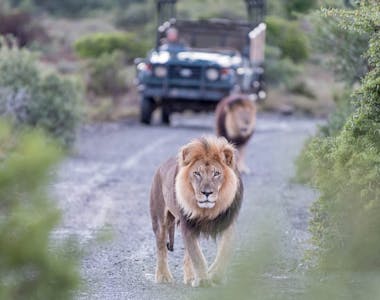
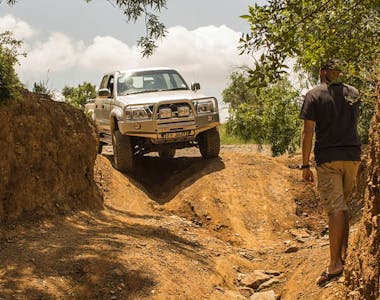
Book With Confidence
Monthly Payments
Spread the costs with no interest or additional fees
Best Price Guarantee
We won't be beaten on price. If you find this adventure at a lower price please get in touch!
Reserve now & pay later
Reserve your adventure today and pay later, free of charge
ATOL protected
Book with confidence
Hold your space today, for free
or book your trip with a deposit and then pay the rest in instalments.
Reserve your flights with us
Add flights to your booking and we'll take care of the rest. You'll get 24/7 support from our team & ATOL protection.
Speak to our experts
Call or email our expert team to find out more and help with ideas and planning.
